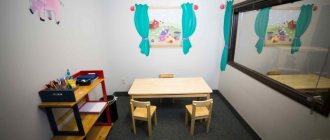The opportunity to work with children, in a quiet and comfortable office, with a stable, albeit small, salary - often speech therapists come into the profession with precisely these goals. But idealization at the start of your career can lead to disappointment in the future. Not everyone should choose this profession, says speech therapist teacher Vita Bilukha . Only by vocation and only to people whose desire to help others prevails over all others.
What features of the profession do young specialists learn about when starting their first job? What are the pros and cons? How much can you earn in the public and private sectors? And where to study to become a speech therapist after grades 9 and 11? We answer these questions in the FAN .
photo from the personal archive of Vita Bilukha /
Who is a speech therapist? What is his job?
A speech therapist works at the intersection of medicine and pedagogy. If we delve deeper into structural issues, then speech therapy is part of special pedagogy, i.e. defectology. Although until the 60s of the last century it was part of medicine. In some countries, even now only a person with a medical education can be a speech therapist.
A speech therapist (see profession speech therapist) is a specialist in correcting speech disorders, and they occur in both children and adults; they can affect both oral and written speech, pronunciation and deep speech processes.
Essentially, a speech therapist is a coach, but not a sports coach, but a speech coach. If the problem is only in pronunciation, a speech therapist performs articulation exercises, teaches you to breathe correctly, and gives a massage. Helps to extract the correct sounds and trains their pronunciation - first separately, then in syllables, in words, etc., until these sounds are included in speech.
But diction is only the cosmetic side of the issue. Speech serves us to convey information, express thoughts and emotions.
Often parents do not realize that if at the age of three the child hardly speaks, uses fragments of words or gestures instead of phrases, they should not even go, but run to a speech therapist. Such a delay in speech development, if not corrected, will ruin the child’s life.
In this case, the speech therapist works on replenishing vocabulary, grammar, and coherent speech.
Speech therapy help is also needed for stuttering, anatomical disorders of the speech apparatus, etc.
Most speech problems are visible in childhood. But speech can be affected at any age - after an injury or stroke, for example. If a person has already had speech, a speech therapist helps to disinhibit it, and, if possible, return it to its former liveliness and richness.
The most important thing is that the child tried
– If the parents seem to be happy, it is clear that their “speech therapy” child is really making some progress, trying hard, but the teacher thinks that the child is weak and continues to give C grades?
- This is, of course, bad. The most important thing is that the child tried. He didn't try for a C grade. So effort is worth giving a grade. It is no coincidence that, for example, music schools have disadvantages. For example, they give it a five with three minuses. These disadvantages are the degree of gradation of success. And sometimes you may not deliver anything. I tried, and well, and well done. Because if a person tries, he should be rewarded for his efforts.
The reward system should be flexible. Our center has extensive experience working with children with autism. In classes they are not rewarded only for the final result. When will he be there again?
Encouragement from the teacher can be a word for some specific small task: “Where did you try, let me see.” I tell schoolchildren: “Let’s choose the three best letters and give them a plus.” Or: “Let’s write for dad. After all, we will try for dad.”
You can set a specific task: “Let you now write the text from memory.” And we don’t look at the mistakes, but the child is happy, he made it. We will talk about mistakes later, in another task.
When I worked as a school speech therapist, I rewarded children for small pieces of work. I told them: “All the work didn’t work out very well, I will only appreciate this exercise, and here you did everything just wonderful!” I think this approach is reasonable.
– Is it possible for parents to offer their child some kind of material bonuses for classes?
- Certainly! All incentives just need to be thought through. For some this is an encouragement, but for others it is not an encouragement at all.
I sometimes ask parents the question: “What would be an encouragement for you?” The smart and fast ones answer: “Money.” This is natural, an adult wants money, because with it he can buy any reward he wants. It's difficult for children. Children cannot do something like that directly.
Although there was such a story in my life when my mother, a fourth-grade student, decided to ask if I knew natural history. And I told her everything, answered all her questions and received a metal ruble as a reward. It was the ultimate dream, because the ruble is very, very much. For a ruble you could buy a lot of ice cream, for example. Mom never indulged in money; everything amounted to 20 kopecks for a pie and tea, relatively speaking. And then a ruble was given. This example is about an individual approach.
Therefore, for some, emoticons, flags, plus signs are suitable as encouragement, for others - candy. At the center, we reward children with candy, cut cookies into pieces, and for a small task completed, part of the task is micro-encouragement: “You did it!”
– What if the teacher gives a C, thinking that this will give the child motivation to study better?
– I just want to say: is it possible to leave this teacher? In my opinion, the concepts of motivation and encouragement, or rather even punishment, are confused. Evaluation in this case is not motivation, but punishment.
When training, punishment does not work, only encouragement for any success, even minimal.
Such a teacher needs to be somehow pushed towards reading books on behaviorism, the study of human behavior. If a child has studied, he cannot be punished for it. Punishment is for misconduct, not for learning.
– How do you motivate a child? So he writes with errors, counts with errors, and he doesn’t care. How to explain why to correct the situation?
- I'm used to it. Apparently, he was put in such a situation that he stopped worrying about it. There are a lot of mistakes, they are growing. There must be types of work in which there will be no errors. For example, the task: just copy the text. Not accurate copying, not competent writing, but only copying. Or dictation and only speed dictation. And a score for speed. But we have several at once: we dictate quickly and give marks for literacy, and even accuracy. And if it’s an essay, then also for aesthetics, for lyrics and for mistakes. Therefore, it will not suit such a child. We need to show him that he can, that he can cope.
When you start working with such children, at first they “hate” you: you force them to do something they don’t like to do. I usually instill confidence in the child and say: “I will teach you in such a way that it will not be scary. It’s definitely not scary.”
Very often I don’t let you check the entire text, but select a couple of sentences and say that the child made a mistake in them. I put a dot in the margin - there is an error on the line. This is no longer very scary, because not the whole text. And the child immediately finds this mistake for me. “Wow, almost without checking, you “see” errors, it’s great, simple!” And he is proud that everything works out quickly and at the same time I do not scold him for correcting it, as they usually scold him for mistakes, but praise him.
– All speech therapy problems should be solved by what grade?
- All? Traces of many complex systemic disorders can remain for life. If speech in general was formed by school, and writing and reading impairments appeared already in the 1st-2nd grade, then it is advisable to complete the correction by the end of elementary school. If a child did not receive proper help in elementary school, and the problems persist, then a speech therapist can be contacted throughout the entire period of schooling. Let me list the optimal timing of correction.
So, if three people are included in the process: mother, child and specialist, then provided that the child has 4-5 in mathematics, written speech disorders can be corrected within a year. If a specialist works without the help of parents, then in two years. If a child’s cognitive functions are reduced, the process lasts for many years.
What is the relationship between the work of a speech therapist and a neuropsychologist?
I would also add a neurologist to this list. The cause of speech disorders is often, although not always, neurological. For example, a child of about six wants to say “mousetrap”, but it turns out either “mousetrap” or “myfevofka”. For some reason everyone is having fun, but he doesn’t understand what’s wrong again. This is probably what it is - a violation of the innervation of the muscles responsible for articulation. And if you have porridge in your mouth, you don’t perceive someone else’s speech very clearly - these things are clearly related to each other. If, say, a child does not distinguish V and L by ear, he says wampa - without any ulterior motive. And everyone around again: “Ah! Oh! Come on, tell me correctly!” But he cannot say it correctly; for this he needs to develop phonemic awareness and train his language. In speech therapy terminology, such a disorder is called phonetic-phonemic underdevelopment. If you do not overcome it in time, your speech will not improve on its own, and in school you will also have mistakes in writing.
It happens that the diction itself is excellent, but the child stubbornly says “my jacket,” has difficulty remembering the words, or constantly reinterprets them. He just can’t remember that his friend’s name is Larisa, not Ralisa. The reason for this underdevelopment of speech may lie in the underdevelopment of speech centers in the brain. Stimulating them is primarily a medical problem, but it is also a job for neuropsychologists and speech therapists who are looking for workarounds. For example, what is not learned by ear can be supplemented with visual images, special logorhythmic exercises, etc. As a speech therapist, I teach such children to listen and hear, understand speech, describe, retell, answer questions, etc.
Speech disorders can be combined with mental retardation. Unlike mental retardation, it is most often surmountable, but this also requires the joint efforts of a neurologist, neuropsychologist and speech therapist.
Specialists also work together if speech is impaired as a result of a stroke or head injury.
The efforts of speech therapists are focused mainly on speech as such. Speech is impossible without normal brain function. She suffers if mental functions are suppressed or underdeveloped: attention, memory (especially speech-auditory memory), etc. The speech therapist also works on them, using special techniques. But to a much greater extent this applies to the work of a neuropsychologist. If, of course, he exists.
And a neuropathologist and neurosurgeon treat organic damage - the main cause of speech impairment.
It happens that problems with the vocal or articulatory apparatus interfere with normal speech. For example, there is a cleft in the palate, it makes the voice nasal, and diction also suffers. This is rhinolalia, its causes are eliminated by a maxillofacial surgeon. A speech therapist helps to bring the speech apparatus into working condition as soon as possible after surgery.
There are many options for speech disorders. Regardless of the reason, they cannot be overcome by fragmentary training. They require multifaceted, complex work.
The child needs to be given an exemption, like from physical education.
– It turns out that a child with speech therapy problems at school is in a state of stress. Stress at school, because things don’t work out, and the teacher doesn’t always understand why. In addition to schoolwork, classes with a speech therapist, and sometimes a neurologist gives some exercises.
– Mechanisms to support such a child exist. Let me draw a parallel. For example, a child breaks his leg and is exempt from physical education. After all, no one invites him to classes and gives him two grades for failing to pass the standards. But for some reason, speech therapy errors and learning difficulties are not interpreted as a disorder or pathology that requires, in some sense, leniency. It is necessary for the teacher to show not only tolerance, but simply universal wisdom.
So a student came to class, and he was beautiful in himself. And there is nothing unusual about it. Just like everyone else. But he developed a problem in the form of a writing disorder, dysgraphia, because before school he was a “speech” child, or did not keep up with the general pace of development, or did not fit within the allotted framework for mastering writing.
Why shouldn't he just temporarily count all these errors as one? Or don’t count them as mistakes at all. Give exemption, like from physical education. He still goes to classes, studies, studies. And don’t say all the time: “As long as I tolerate you, and the time will come, I will punish you if you don’t improve!” If we undertake to help, then we must help to the end.
In the end, we write, read, count in order to receive information, and not in order to say: an error, not an error. Therefore, the child needs to be helped. And for each, any minimal personal success, praise him.
A boy taught me who said: “The teacher will never see what I am capable of, because he is used to me always making mistakes. I work with you, and everything works out for me.” I suggested to my mother: “Ask this teacher for additional lessons, so that he will finally look at the child more closely, not against the background of his overall performance, but his personal successes.” After additional classes, the teacher said: “It turns out you’re not a fool!”
– What is dangerous to miss in elementary school? What is important not to miss?
– In primary school you only need three skills: reading, writing and counting. Dot. Nothing else. And you need a good teacher to teach this. Because if the teacher is difficult, she creates fear and reluctance to learn for the entire subsequent period. You have to like the teacher.
The teacher must influence the microclimate in the classroom so that the children feel comfortable.
All parents strive to ensure that the teacher is the strongest, the smartest. When parents choose a school for a child, they need to pay attention not only to whether the teacher is “strong” or not, but also to whether she is suitable for the child. In general, absolutely everyone remembers GOOD people and good teachers; moral things are instilled by good people. How demanding is the teacher, is she ready to differentiate the child? The child is assessed from early childhood, but at school this reaches its climax.
I can look at this situation as if from the outside, because when I worked as a school speech therapist, I saw how children are drawn to those teachers who know how to share and can resolve a difficult situation in a game.
All children love the young and beautiful, and those whom you can take by the hand and walk with her in pairs to the dining room, without fear that she will shout “get into line.” And everyone is fighting for this hand.
And maybe this teacher is not the most titled, but she can calmly explain the material and give adequate grades. And in the classroom there is a normal, healthy environment.
Many people say that modern children are cruel. Of course, there will be cruel ones if the teacher starts shouting: “You should have taught mathematics a long time ago instead of running, training your legs somewhere.” Well, who will like it? If, on the contrary, they say about a child: “Guys, look what a boy he is. And here he knows how to draw,” the child will open up to him. It’s all very easy to organize and find and highlight each student’s strengths and abilities.
I always relied on hooligans. If you attract them to you, the microclimate will be formed correctly. I have always liked extraordinary children, and it doesn’t matter whether they had special needs or not. You meet different children in practice: a rebus child to whom you need to find the key, or a loser child who attracts problems like a magnet, finds himself in absurd situations, or such a “prickly hedgehog”, everyone has already offended him, he defends himself.
You see that the child requires your attention, he needs support, praise, an interesting assignment, and it’s not even a matter of dysgraphia, but simply if you support the person, everything goes differently, a different emotional mood.
Where does a speech therapist work? Is a flexible schedule possible?
Speech therapists work in educational and medical institutions. A speech therapist in education is called a teacher-speech therapist, in medicine - simply a speech therapist.
Speech therapists in medicine work in clinics and departments for people with speech pathologies, with consequences of stroke, in maxillofacial surgery clinics, etc. They conduct appointments in clinics, work in orphanages, etc.
The salaries of speech therapist teachers in some kindergartens, mass and correctional schools are still maintained. And also in commercial development centers. A free schedule is possible if the speech therapist works exclusively privately. The salary of a speech therapist is 20 hours per week. Some speech therapists work in two places at once: in the morning in one place, and in the afternoon in another. If desired, you can combine work in an institution with private practice. Usually these are classes with wards at home, which, let me tell you, is quite difficult.
What is bad about being a speech therapist?
This is working with children and their parents, which in itself is not bad, but difficult. It is difficult to find a common language with a child if he is already so overwhelmed that he is afraid to talk at all. It is difficult to call a child to order, especially if he does not understand speech well, if his memory is weak, his attention is unstable.
It is difficult to convey your recommendations to parents, who often do not understand the seriousness of the problem. Yes, they want the child to finally learn to speak. But first of all, they are concerned with those very “defects of fiction”, and not with speech as a whole. The more severe the violation, the more reluctant they are to complete homework.
Now I work at a school for children with severe and multiple developmental disabilities. Their speech difficulties are a consequence of motor and intellectual impairments. Many of our students have behavioral problems, so-called disorders of the emotional-volitional sphere. To win over such a child and set him up for work requires diabolical ingenuity and absolute dedication. Speech pathologist, speech therapist, psychologist, subject teachers - we all work in the same team.
It's difficult, but we like it.
The abundance of papers, plans and reports that have to be compiled for the delight of education bureaucrats is annoying. I will never learn to fill out a journal without making mistakes!!!
But what’s really bad is what’s happening in education now. I don’t know how long this misfortune will last, but many kindergartens and schools have lost their speech therapists and speech pathologists. And in many Russian cities there are none at all. If we talk cynically, I should be glad: the fewer speech therapists in kindergartens, the more private lessons there are for speech therapists.
But, as I already said, one speech therapist in the field is not a warrior. The more complex the problem, the more specialists need to be involved. What kind of future awaits a child if he speaks his native language like a foreigner? How will he find friends? How will he finish school? What profession will he master? This is a very serious problem.
There must be time for passion
– “Speech therapy” children require more attention. Are there any mugs worth donating to? How then can you find time for your child to just play and be idle?
– We said that in the elementary grades you need to learn three basic functions: reading, writing and counting. It’s not Moscow studies to study biology, but precisely this. And we must definitely develop some kind of interest, which, perhaps, will help in life, and maybe become a start to choosing a profession. We are all interested in something.
Primary school is the period when a child should try. For example, he went karting. What boy doesn't want to go karting: there are cars there. But I came across a teacher who only forces these karts to be cleaned and polished. And that's it, the desire is gone. Well, okay, we don’t want that, now we want to go to another circle.
We came to fight. It’s the same thing there: adults fight, and everyone else watches. And again you can search. You need to find a specialist who will interest you, make you fall in love, let you roll over, and hit the punching bag. This is also a difficult search. It is difficult to find any specialist. Have to search.
I am for the child to have a hobby. And time should be allocated for it. Or then, no hobbies at all, just school. But I don't like it that way.
And so that you have enough time for everything and still have time to rest, a schedule can help. It's just compiled incorrectly. Children love it when it is very beautiful. They attached adhesive tape to cardboard, photographed the child himself: here he is reading, here he is writing, here he is counting, here he is eating, and they lined up his entire daily routine on this adhesive tape. I did it and peeled it off. He is comfortable, he has time for everything. He makes it in time. He lives in such a good rhythm. And then look, if the load is heavy, then something will need to be changed, removed.
Who absolutely cannot do this job?
An irritable person, gloomy, self-righteous, a person prone to violence (including psychological violence) will not be able to work as a speech therapist.
You must be able to quickly respond to a constantly changing situation, adapt your methods to the child, and not the child to the methods. There are no universal methods and techniques, no master keys that fit all locks. We need flexibility.
You need artistry, you need playfulness. Although no one will give you an Oscar for this.
When you sit one-on-one with a student, you must be able to be “here and now” and put aside everything that is not related to this communication. If you are not ready to peer and listen closely to your students, nothing will work.
How to prepare a child for school - advice from Olga Azova
I believe that there is no need at all to prepare children for school in the way they do now. It even sounds somehow absurd: preparing for school. What will we do at school then if we have learned to read and write? How do you cook anyway?
Train your muscles.
When preparing for school, it is necessary to deal with the physical development of the child. Many modern children are physically very weak. They play little, jump and run little, and don’t know how to play role-playing games. If a child has not learned to hold a pen, stroke, and does not know how to button buttons and lace shoes, it will be more difficult for him to master the skill of writing and learn in general.
Motor development greatly stimulates the brain, forms new neural connections, and stimulates the centers that are responsible for speech and motor functions.
When a child comes to me for a consultation, I do not immediately sit him down at the table, offering pictures. I carefully watch how the child enters my office: does he touch the door frames, does he fall over on his side, does he limp, does he walk on his toes, does he shift from one foot to the other.
Prepare for the fact that your child will need to be static for a long time: train the muscles of the back and leading arm (adaptive physical activity, general massage with an emphasis on the muscles that are involved in the act of writing, biofeedback training for the leading arm and back muscles).
Train your balance.
A bicycle is a means of transportation for a child, so when walking, the child should ride the bicycle, and not the father’s bicycle.
Use other opportunities to train your balance: jump on a trampoline, try different exercises, swing on a swing, walk on a balance beam, do exercises on a stability ball.
A well-developed balance is a support for the development and coordination of functions that form writing and counting skills.
It is good that the child is ready neurologically and psychologically for school.
If there is some kind of pathology, then you need to think about how to help him. Let's say a child with speech disorders. This child should remain in the sight of the speech therapist and be supervised by him. It is better for such a child to be observed by a psychologist and neuropsychologist.
Before school, play a lot of role-playing, rules-based, story-based and other games.
Play is a motivation for learning. A child should play a lot before school. When a child plays, he builds relationships in the game. Games have rules and order. This is the only way to painlessly change the leading activity: from gaming to educational. Then the child begins to understand the learning task, and not just play with an eraser and pencil.
Learn to listen.
Of course, you need to watch it too. But a huge flow of information comes through the ears, especially if the teacher is teaching. For women, the auditory method of communication is more typical. Boys, on the contrary, are more suited to the visual type. And in general, it’s easier for children when the task is given not only by ear, but also written down. Many mothers know that if the teacher does not write homework on the board, the child believes that nothing was assigned. I didn't hear.
Learn to hear, train auditory perception, “phonemic hearing” (distinguishing sounds that are similar in sound). Use Tomatis (method for developing auditory perception). Learn to answer questions and respond.
By school, the child must learn to speak spontaneously.
Teach your child to retell, tell, fantasize. If a child has difficulty finding words (cannot name the word “garage”, “fountain” in the picture), makes many grammatical errors (trees - “trees”), does not pronounce the whole word (thermometer - “temomet”, “temom”), cannot pronounce sounds (misses, replaces, distorts), his “phonemic hearing” is impaired, then he definitely needs to work with a speech therapist .
7. It is necessary to develop visual-motor and auditory-motor coordination.
I hear, I write, I see, I write. If children do not retain instructions well or are not taught, for example, to memorize a sentence and then write it based on memory, then they begin to copy almost every letter or look at the teacher after each written word during dictation. These children need some kind of training. You need to learn to retain information in memory, starting with sentences of two words, and so on up to six words.
Train your auditory-verbal memory: learn poetry! Nothing trains your memory better than memorizing a quatrain every day. Maintain this form throughout your life. If a child has problems with perception and memory, then he needs to work with a neuropsychologist who will stimulate these functions.
It is important to decide on lateralization and which hand the child will write with.
Neurophysiologists and neuropsychologists ask you to decide on your leading hand, eye, leg . Why do we need to decide? In order to determine the type of child and, possibly, the type of learning. If a child is right-brained: he has an eye and a right ear, maybe he is a future artist or musician. This should be taken into account when choosing a program. And if we send such an emotional, artistic, creative child to a class to learn according to Peterson, it will not be easy for him there. Because he is not a logician, not a mathematician.
Before school you need to develop a rhythm.
The basis of the sound-syllable structure is the ability to clap the rhythm. We speak in words, syllables, sentences - linearly. And we write linearly. If a child has poor rhythm, then in oral speech there is a violation of the sound-syllable structure, and in writing there are omissions and rearrangements. Slap different rhythms, practice different types of timing!









